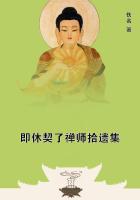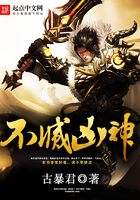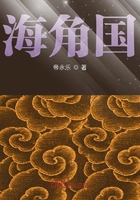"As you know," he said, "to-day the delegates sign the Treaty of London. It still must receive the signatures of the Sultan and the three kings; and they will sign it. But until they do, what the terms of the treaty are no one can find out.""I'll bet the Times finds out!" said Sam.
"That's it!" returned Forsythe. "Hertz, the man who is supposed to be selling the secrets of the conference to the Times, dines here.
To-night is his last chance. If to-night he can slip the Times a copy of the Treaty of London without being caught, and the Times has the courage to publish it, it will be the biggest newspaper sensation of modern times; and it will either cause a financial panic all over Europe--or prevent one. The man they suspect is facing us. Don't look now, but in a minute you will see him sitting alone at a table on the right of the middle pillar.
The people at the tables nearest him--even the women--are detectives. His waiter is in the employ of Scotland Yard. The maitre d'hotel, whom you will see always hovering round his table, is a police agent lent by Bulgaria. For the Allies are even more anxious to stop the leak than we are. We are interested only as their hosts; with them it is a matter of national life or death. A week ago one of our own inspectors tipped me off to what is going on, and every night since then I've dined here, hoping to see something suspicious.""Have you?" asked Sam.
"Only this," whispered Forsythe--"on four different nights I've recognized men I know are on the staff of the Times, and on the other nights men I don't know may have been here. But after all that proves nothing, for this place is a resort of newspaper writers and editors--and the Times men's being here may have been only a coincidence.""And Hertz?" asked Sam--"what does he do?"
The Englishman exclaimed with irritation.
"Just what you see him doing now!" he protested. "He eats his dinner! Look at him!" he commanded. "Of all in the room he's the least concerned."Sam looked and saw the suspected Adolf Hertz dangling a mass of macaroni on the end of his fork. Sam watched him until it disappeared.
"Maybe that's a signal!" suggested Sam. "Maybe everything he does is part of a cipher code! He gives the signals and the Times men read them and write them down.""A man would have a fine chance to write anything down in this room!" said Forsythe.
"But maybe," persisted Sam, "when he makes those strange movements with his lips he is talking to a confederate who can read the lip language. The confederate writes it down at the office and--""Fantastic and extremely improbable!" commented Forsythe. "But, nevertheless, the fact remains, the fellow does communicate with some one from the Times; and the police are positive he does it here and that he is doing it now!"The problem that so greatly disturbed his friend would have more deeply interested Sam had the solving of his own trouble been less imperative. That alone filled his mind. And when the coffee was served and the cigars lit, without beating about the bush Sam asked Forsythe bluntly if on his paper a rising and impecunious genius could find a place. With even less beating about the bush Forsythe assured him he could not. The answer was final, and the disappointment was so keen that Sam soon begged his friend to excuse him, paid his bill, and rose to depart.
"Better wait!" urged Forsythe. "You'll find nothing so good out at a music-hall. This is Houdini getting out of his handcuffs before an audience entirely composed of policemen."Sam shook his head gloomily.
"I have a few handcuffs of my own to get rid of," he said, "and it makes me poor company."He bade his friend good night and, picking his way among the tables, moved toward the pillar on which the waiter had hung his hat. The pillar was the one beside which Hertz was sitting, and as Sam approached the man he satisfied his curiosity by a long look. Under the glance Hertz lowered his eyes and fixed them upon his newspaper. Sam retrieved his hat and left the restaurant.
His mind immediately was overcast. He remembered his disappointment and that the parting between himself and Polly was now inevitable.
Without considering his direction he turned toward Charing Cross Road. But he was not long allowed to meditate undisturbed.
He had only crossed the little street that runs beside the restaurant and passed into the shadow of the National Gallery when, at the base of the Irving Memorial, from each side he was fiercely attacked.
A young man of eminently respectable appearance kicked his legs from under him, and another of equally impeccable exterior made an honest effort to knock off his head.
Sam plunged heavily to the sidewalk. As he sprawled forward his hat fell under him and in his struggle to rise was hidden by the skirts of his greatcoat. That, also, he had fallen heavily upon his hat with both knees Sam did not know. The strange actions of his assailants enlightened him. To his surprise, instead of continuing their assault or attempting a raid upon his pockets, he found them engaged solely in tugging at the hat. And so preoccupied were they in this that, though still on his knees, Sam was able to land some lusty blows before a rush of feet caused the young men to leap to their own and, pursued by several burly forms, disappear in the heart of the traffic.
Sam rose and stood unsteadily. He found himself surrounded by all of those who but a moment before he had left contentedly dining at Pavoni's. In an excited circle waiters and patrons of the restaurant, both men and women, stood in the falling snow, bareheaded, coatless, and cloakless, staring at him. Forsythe pushed them aside and took Sam by the arm.
"What happened?" demanded Sam.
"You ought to know," protested Forsythe. "You started it! The moment you left the restaurant two men grabbed their hats and jumped after you; a dozen other men, without waiting for hats, jumped after them. The rest of us got out just as the two men and the detectives dived into the traffic."A big man, with an air of authority, drew Sam to one side.















